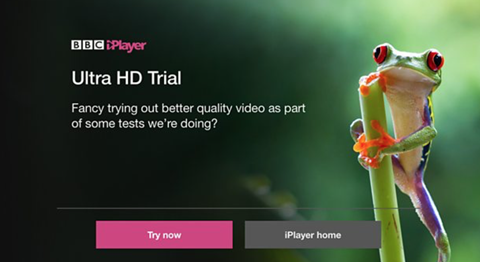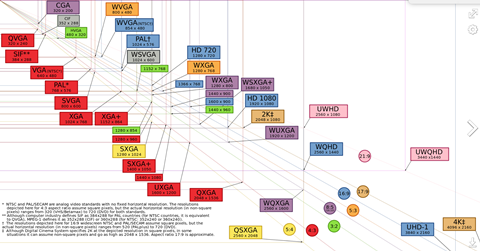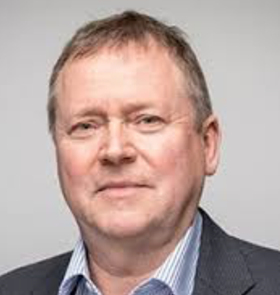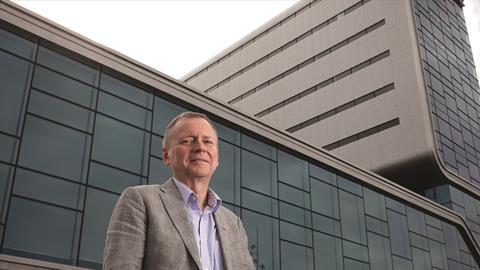UHD and HD will forward together as technology advances to enable different frame sizes, frame rates and colorimetry on programmes.
Andy Quested wears many vocational hats.
Once an editor on the BBC sitcom Keeping Up Appearances, he is now the Chair of the EBU’s Strategic Programme for Quality Control, as well as Chair of the ITU’s Working Party 6C, the group responsible for production and exchange standards, including HDR.
He also has a day job as the BBC’s Head of Technology for HD and UHD.
At the IBC Conference in 2016, he was part of a panel answering the question, ‘Is There a Business Case for UHD?’
“We’ll eventually have three resolutions existing side-by-side within the same services”
“The business case is what the business wants it to be,” says Quested in reply.
“Unlike the change from SD to HD, this time UHD and HD will go forward together. We will see an improvement in HD, with better colour, and we’ll eventually have three resolutions existing side-by-side within the same services.
”We’re not going to be constrained in the same way as we were with channels having a single frame rate and a single resolution, and when we move to IP services we really won’t care!
”You don’t need to have everything at one standard rate unless you have a traditional linear service. The technology is getting good enough that we could do different frame sizes, frame rates and colorimetry on programmes just like we used to change between widescreen and 4:3.”
What is the BBC’s stance on UHD?
For programmes that take a long time from commission to TX, such as natural history or big dramas, we are already producing in UHD. But it is our partners that primarily fund this next generation output.
BBC Worldwide has been absolutely clear that UHD, even with better colour, is not good enough for future-proofing its assets. Therefore it will not commission anything that is not also HDR. Resolution, colour and dynamic range are all absolute musts. We’re making these programmes now.

What flavour of HDR?
All BBC UHD programmes will have HDR, and the HDR will be hybrid log-gamma (HLG).
So, can we expect to see a UHD service from the BBC?
Are we going to rush out and launch a UHD channel? 90 per cent no. I cannot say it’s 100 per cent because things change. In my opinion there are better ways of delivering it. We know iPlayer can do UHD and we know that bandwidth to the home is going up.
I think that it is a far more efficient way of changing a standard. If you put a UHD channel up you are expected to fill it. If you put an OTT service with UHD as an option to the same display that you would be watching it on anyway, you’ve got an as-needed service and the potential for catch-up.
Some people say that resolution doesn’t matter. You disagree. Why?
Resolution is really important, and not just because of screen size. Those people who say you don’t need it in the home are blinkering themselves from the rest of the industry.
Viewing distance matters. Digital display advertising is another important consideration. There are shop screens, bus stop adverts, and escalator displays. Advertisers want the resolution. They want to show off their products. They aren’t going to be happy with something that’s fuzzy.

But resolution is just part of the UHD package?
Yes – resolution is only a quarter of the story. The colourimetry within UHD is amazing and the dynamic range immediately takes UHD from a gasp to a wow. Having higher frame rates is part of the package too, although I am not a fan of frame rate being an engineering decision. Frame rate is just another storytelling tool.
Even for live sport?
Again pitch-side advertisers might have a point of view. As soon as the camera pans – which is most of the time in football coverage – those electronic perimeter advertising hoardings turn to mush. You cannot read them at 50fps. When you see them at 100fps you can. Unfortunately we cannot yet display 100fps easily.
PROFILE

Andy Quested
Head of Technology BBC HD and UHD, BBC Design and Engineering
Region: United Kingdom
Andy Quested started life in the BBC as a Technical Assistant becoming an editor in 1982 working across a range of BBC output but is best known as the editor of Keeping Up Appearances!
In 2000 Andy moved to the BBC Technology Group taking a lead in the BBC’s strategies for HD, 3D, UHD, QC and file workflows. Currently Andy is leading the work for the BBC’s automated quality control project and also chairs the EBU strategic Quality Control programme.
Working as an ITU Rapporteur Group chair, Andy has lead international work on 3D, QC and the group looking at High Dynamic Range standards and is now chair of the ITU’s Working Party 6C which is responsible for production and exchange standards including HDR.
Andy is also the technical lead for the UK Digital Production Partnership’s AS-11 file format and the chair of the EBU’s Strategic Programme for Quality Control.
This interview was conducted for IBC2016

























No comments yet